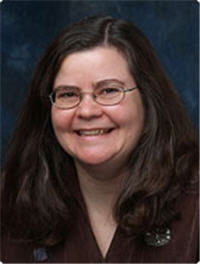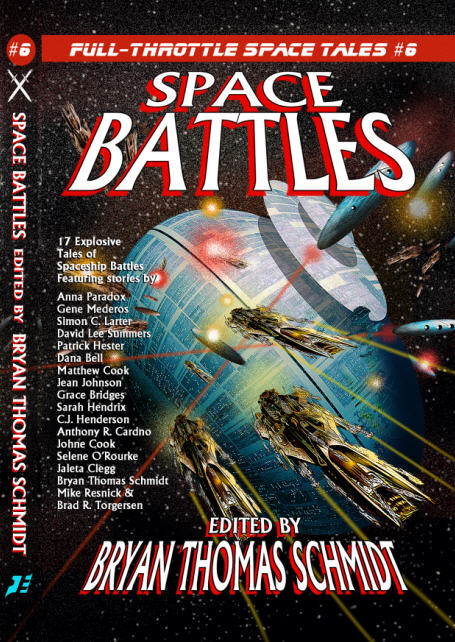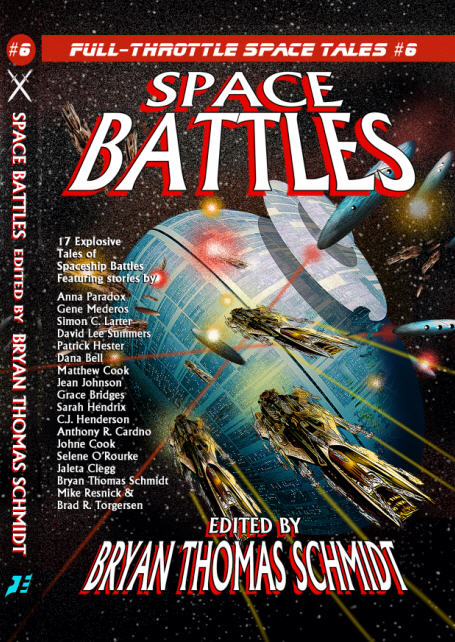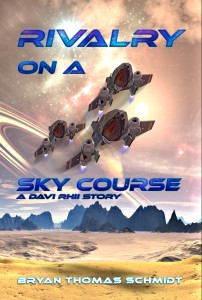 For most writers, Conventions and Author Appearances are of huge importance for both selling books and networking with industry professionals. Although Conventions and events can occur year round, you may not be able or willing to travel the entire year. Whatever the case, it’s never too early to start identifying Cons and planning for the coming year. If you’ve never done it, approaching and identifying potential Cons for author appearances might be daunting. Here’s some tips I’ve used which have helped me succeed at planning a Con schedule:
For most writers, Conventions and Author Appearances are of huge importance for both selling books and networking with industry professionals. Although Conventions and events can occur year round, you may not be able or willing to travel the entire year. Whatever the case, it’s never too early to start identifying Cons and planning for the coming year. If you’ve never done it, approaching and identifying potential Cons for author appearances might be daunting. Here’s some tips I’ve used which have helped me succeed at planning a Con schedule:
1) Identify The Priority Cons First– Con lists are everywhere. You can find them in the backs of zines like Asimov’s and Analog. You can search the web for places like upcomingcons.com/science–fiction–
Once you’ve identified the Cons you want to prioritize, check the locations. Look at things like the cost, who’s coming, the hotel, travel arrangements, dealers, etc. Then decide if the expenses and difficulties getting there are worth it or not. I always google the Con hotel and search for nearby hotels to see if there are cheaper options. After all, Cons are expensive and often thrown in the most expensive hotels. Yes, it’s fun to stay in those hotels, but unless your publisher is paying for it, consider whether you can reasonably hope to recoup your costs. If you pay for a membership, which many Cons require, housing, food, and travel, it can add up to several hundred dollars quick. Will you sell enough product to pay for that? I doubt it. There’s also product cost, too.
2) Contact Programming–Panels are a key opportunity to see and be seen as well as prove your value to readers and fellow professionals in a way that doesn’t involve self-praise or pushy sales tactics. I usually consider programming as I determine which Cons to put on my list for the following year. Contact Programming early on and find out if they would promote you as a guest. Do they offer discounts for participants? Can you be on panels or do a reading? Is there any interest? Knowing this may help you narrow down your list to the final choices.
Once you’ve identified the Cons you want to attend, be sure and contact programming. There’s usually a link or email address on the website. Send your bio and tell them which books/products you’d promote. Offer panel suggestions and ask to do a reading. Be sure and consider their theme when suggesting panels. I have never had anyone turn me away. Most are very happy to have another creative professional headed their way. And they are more than happy to have volunteers to up the value of programming. [NOTE: If you’re nervous about panels, here’s 12 Tips For Preparing For Author Panels. I really find them quite fun, especially when other authors participate.]
3) Find A Dealer–If the Con’s website lists dealer attendees, try and find one to carry your books if you come. Paying for your own dealer table can be expensive and, more than that, can keep you from promoting yourself by locking you down at a table for the whole Con. Unless you’re an expert salesman, you’ll want to promote yourself in subtler ways: doing panels, doing a reading, schmoozing and hanging with fans. Standing by a table trying to start a conversation with anyone who passes can make for a long weekend. Especially if you want to enjoy the Con while you’re there, this is not always the best option. Unless you have someone who can go along to man the table when you’re out, and especially if you have only a few books or items to sell, finding another dealer who will take a cut to sell your stuff on consignment is really the best way to get product out there. You can help bring people to their table and they get attention from having attendee’s books on their table. It’s often a win-win. I usually encourage people to buy from the dealer even at my readings, etc. And if I do sell books elsewhere in the Con, I give the dealer a cut. Unless they’ve already sold enough of my product that they’ll feel justified in helping me out. Fair is fair. You are taking space they could have used for other merchandise so be sure and do your best to make it worth their while by not just verbal thanks but letting them show some profit from the enterprise.
If the Con site does not list dealers, you can track them down. Some Con dealer reps will offer to put you in touch, but some won’t. You can search dealers and their appearance calendars, or, better yet, contact people you know who have attended the Con and might remember who was there.
4) Cutting Down Expenses– Many Cons offer discounts for members of professional groups like SFWA. Be sure and ask. Discounts can be given for those who participate in a certain number of panels or do readings. You can also get discounts if you’re a dealer, etc. It’s good and perfectly acceptable to ask questions and explore all the options. Some Cons will pay for your housing and meals, but usually that only applies to those on the invited guest lists or billed as headliners. There are other ways to cut costs: hotels usually occur in clusters. Check neighboring hotels for cheaper rates. You can often get a deal and still be near enough to stay up late and party withotu needing to drive or pay a cabbie. Visit the Con’s site and FB page and post about needing a roommate. Sharing a room is a great way to cut costs. I even offered to guard the dealer room at a Con and was invited to sleep in that room for free. You can also map out restaurant options. Does the hotel have in-room fridges or kitchens? Microwaves? This can help with cost savings too. You can pack cereal, snacks, popcorn, etc. to use as fillers between meals and cut down on your appetite. You can also find nearby places with much better prices than an in-hotel restaurant. Explore your options.
Another option is car pooling. With airfares on the increase, finding Cons within driving distance can be a real advantage, particularly if you plan to stay offsite for cheaper lodging. No need to worry about transportation when you’re there, and no need for luggage fees or concerns when hauling product. You can also bring a microwave and food or a mini-fridge if you want. In the end, since it’s a business write off on taxes, paying for gas can wind up being a cheaper, more practical option. Even better, if other people want to go, you can ride together. Sharing driving time and expenses can make it even more affordable. Lots of people like to hit as many local Cons as they can. Often they need a ride or prefer to carpool for the same reason. It may even be you catching a ride with someone else.
5) List Your Appearances On Your Website–My Con schedule is listed on the Appearances page on my website. I list the date, time, location, Con name and link to the website. I also list if I am going to be a pro guest or just showing up on my own. That way people know whether to look for me on panels, etc. As I get a schedule for the Con, I do blog entries listing my schedule, panels and outlining my plans. I mention other guests and link to their websites if I can and I encourage people to come. If I know of discounts, cheaper hotels, etc., I mention that, too. The more people who come out to see you, the more value you are to the Con and the more product you move. It’s better for everyone.
Anyway, that’s how go about planning my author Con schedule. I try and vary the locations of Cons when I can to try out Cons I’m unfamiliar with and meet new people. Once I’ve been at this a few more years, I’ll likely identify a few Cons I want to attend regularly while switching up others. But in any case, I hope these tips give you ideas and assist in making the process simpler and more pleasant for you. How do you plan your Con schedule? If you have tips I didn’t mention, we’d love to have you share in comments. For what it’s worth…
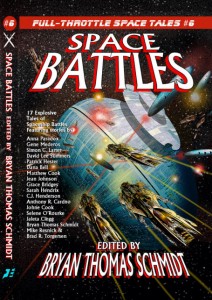 Bryan Thomas Schmidt is the author of the space opera novels The Worker Prince, a Barnes & Noble Book Clubs Year’s Best SF Releases of 2011 Honorable Mention, andThe Returning, the collection The North Star Serial, Part 1, and has several short stories featured in anthologies and magazines. His children’s book 102 More Hilarious Dinosaur Jokes For Kids from Delabarre Publishing along with the anthology Space Battles: Full Throttle Space Tales #6 which he edited for Flying Pen Press, headlined by Mike Resnick. As a freelance editor, he’s edited a novels and nonfiction. He’s also the host of Science Fiction and Fantasy Writer’s Chat every Wednesday at 9 pm EST on Twitter, where he interviews people like Mike Resnick, AC Crispin, Kevin J. Anderson and Kristine Kathryn Rusch. A frequent contributor to Adventures In SF Publishing, Grasping For The Wind and SFSignal, he can be found online as @BryanThomasS on Twitter or via his website. Bryan is an affiliate member of the SFWA.
Bryan Thomas Schmidt is the author of the space opera novels The Worker Prince, a Barnes & Noble Book Clubs Year’s Best SF Releases of 2011 Honorable Mention, andThe Returning, the collection The North Star Serial, Part 1, and has several short stories featured in anthologies and magazines. His children’s book 102 More Hilarious Dinosaur Jokes For Kids from Delabarre Publishing along with the anthology Space Battles: Full Throttle Space Tales #6 which he edited for Flying Pen Press, headlined by Mike Resnick. As a freelance editor, he’s edited a novels and nonfiction. He’s also the host of Science Fiction and Fantasy Writer’s Chat every Wednesday at 9 pm EST on Twitter, where he interviews people like Mike Resnick, AC Crispin, Kevin J. Anderson and Kristine Kathryn Rusch. A frequent contributor to Adventures In SF Publishing, Grasping For The Wind and SFSignal, he can be found online as @BryanThomasS on Twitter or via his website. Bryan is an affiliate member of the SFWA.
19 5-star & 4-star reviews THE WORKER PRINCE $4.99 Kindle http://amzn.to/pnxaNm or Nook http://bit.ly/ni9OFh $14.99 tpb http://bit.ly/qIJCkS.



